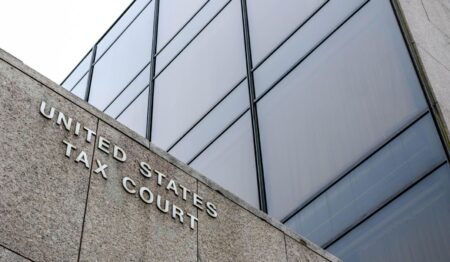A recent tax case is one of the saddest ever and shows how the tax law often has intended consequences.
The taxpayers were a married couple who inherited a business from the husband’s brother. After a couple of years, the husband discovered the business manager was stealing. He fired the manager and put his stepdaughter, his wife’s daughter, in charge.
After a couple more years, the husband closed the business and gave all the assets to his stepdaughter, allowing her to run the business as she pleased.
A few months later the stepdaughter said the previous manager and other employees had used her stepfather’s personal information and merchant credit card account to defraud customers and employees. She said the credit card processors were holding her stepfather liable and would have him put in jail if he didn’t make restitution. In fact, no fraud was perpetrated on the previous customers or suppliers. The allegation was part of an elaborate fraud by the stepdaughter.
The stepdaughter convinced her stepfather to let her handle all the negotiations and transactions related to the fraud charges and proposed settlements. He never met with representatives from the card processors or even the attorney the stepdaughter said she hired for him.
The stepdaughter defrauded her stepfather and mother by creating fake documents purporting to list the legal charges against the stepfather. She also produced fake settlement agreements between the stepfather and the card processors.
Over time, the couple gave the stepdaughter millions of dollars, including distributions from the IRAs of each of the spouses, purportedly to settle the claims.
The couple paid income taxes on the distributions from their IRAs.
Eventually the couple discovered the only fraud perpetrated was by the stepdaughter on them. She eventually was prosecuted and sent to prison.
Historically, the couple would have been able to claim a theft loss deduction and recover most of the taxes paid on the IRA distributions. But Congress suspended the theft loss deduction for the years 2018-2025.
So, after learning of the fraud the couple filed an amended tax return claiming a refund for the taxes paid on the IRA distributions. They argued that the distributions either shouldn’t be included in gross income because of the fraud or that the amounts they transferred to the stepdaughter should be deducted from the income as businesses expenses.
The court ruled that though the taxpayers didn’t enjoy the benefits of the IRA distributions, they had to include the amounts in gross income. If the stepdaughter had fraudulently directed the IRA custodian to make stock sales and distributions from the IRA without the couple’s consent, the couple might not have been taxable on the distributions.
But the couple had full control over the accounts and put in the orders for the distributions. They received the distributions and also voluntarily gave the distributions to the stepdaughter. So, they had to include the distributions in gross income.
Also, though the couple believed the money was being used to pay business-related expenses, it wasn’t actually used that way. Because the money wasn’t used to pay business expenses or for legal fees associated with a business, the amounts weren’t deductible as business expenses.
The couple wasn’t entitled to any refunds of the taxes they paid on the IRA distributions.
(Gomas v. United States, U.S. District Court for the Middle District of Florida, Case No. 8:22-CV-01271, July 17, 2023)
Read the full article here













